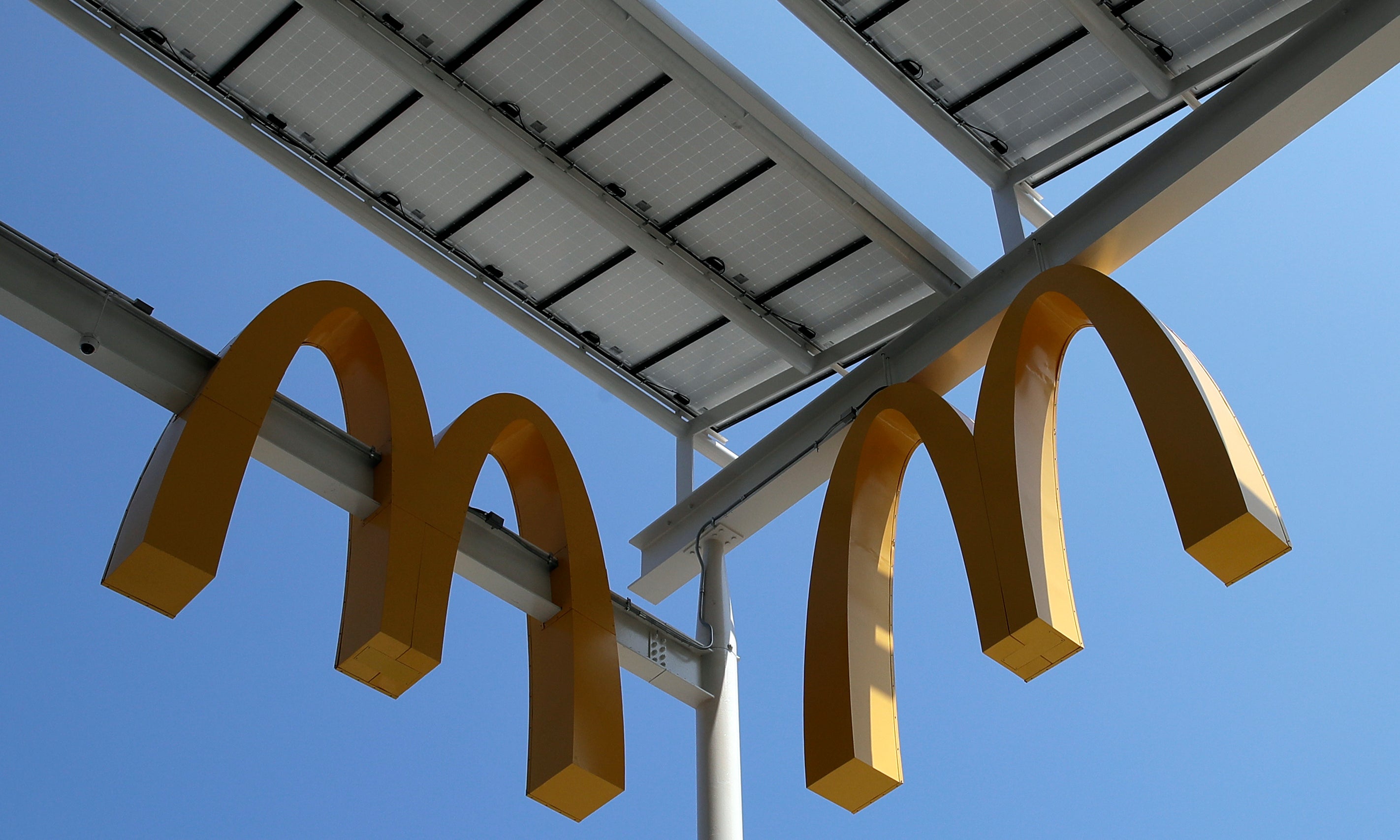McDonald’s admits its business is suffering from effects of Israel-Gaza war
It comes amid calls to boycott the company after McDonald’s Israel gave out thousands of free meals to Israeli forces and citizens following the 7 October attacks

Your support helps us to tell the story
From reproductive rights to climate change to Big Tech, The Independent is on the ground when the story is developing. Whether it's investigating the financials of Elon Musk's pro-Trump PAC or producing our latest documentary, 'The A Word', which shines a light on the American women fighting for reproductive rights, we know how important it is to parse out the facts from the messaging.
At such a critical moment in US history, we need reporters on the ground. Your donation allows us to keep sending journalists to speak to both sides of the story.
The Independent is trusted by Americans across the entire political spectrum. And unlike many other quality news outlets, we choose not to lock Americans out of our reporting and analysis with paywalls. We believe quality journalism should be available to everyone, paid for by those who can afford it.
Your support makes all the difference.Fast-food giant McDonald’s has admitted its business is suffering from the effects of the Israel-Gaza war following calls to boycott the company over its perceived support for Israel.
The burger chain blamed ongoing tensions in the Middle East for its limited sales growth after its fourth quarter and full-year 2023 report released on Monday showed that sales in its licensed markets business, which includes most of its Middle East locations, increased by only 0.7 per cent in the last quarter.
That is compared to the company’s overall sales growth of 3.4 per cent. Meanwhile, sales in their US and other international businesses grew by more than four per cent, McDonald’s said.
The company said the limited growth of sales this year is a reflection of “the impact of the war” between Israel and Gaza, which has so far seen 1,400 Israelis killed and more than 27,000 Palestinians.
It comes amid calls to boycott the company after McDonald’s Israel gave out thousands of free meals to Israeli forces and citizens following Hamas’ attack on Israel on 7 October.
Following the announcement by McDonald’s Israel, franchisees in Saudi Arabia, Oman, Kuwait, the United Arab Emirates, Jordan, Egypt, Bahrain and Turkey distanced themselves from the donations and collectively pledged millions of dollars in aid to Palestinians in Gaza.
In an earnings call on Monday, Mr Kempczinski, McDonald’s CEO, called the backlash “disheartening and ill-founded”, and blamed it on “misinformation”.
He added that the boycott has hurt sales, with the company seeing the “most pronounced impact” in the Middle East, as well as in Malaysia and Indonesia, CNN Business reported.
France, which has the largest Muslim population in Europe, also saw weaker sales, although executives said pricing backlash also contributed to softer demand.
“Also, as we said in our prepared remarks, our outlook is, so long as this conflict, this war is going on, we’re not making any plans, we’re not expecting to see any significant improvement in this,” Mr Kempczinski told investors. “It’s a human tragedy what’s going on, and I think that that does weigh on brands like ours.”
The burger chain is among a number of Western brands that have been hit with boycotts due to their perceived support for Israel following the country’s bombardment of Gaza, which has seen 23 of 36 hospitals in the region rendered inoperable as of 3 January, according to the World Health Organisation and more than 80 per cent of the population internally displaced.
Last week, cafe chain Starbucks slashed its annual sales forecast, partly due to fewer customers visiting stores in the Middle East.
This came after the company in October sued the Workers United union, which represents thousands of baristas at about 360 US stores after the union posted a pro-Palestinian message on social media, which protesters saw as pro-Israel.
Companies including Coca-Cola and Nestle have also faced boycotts.
The Independent has contacted McDonald’s for further comment.
Join our commenting forum
Join thought-provoking conversations, follow other Independent readers and see their replies
Comments